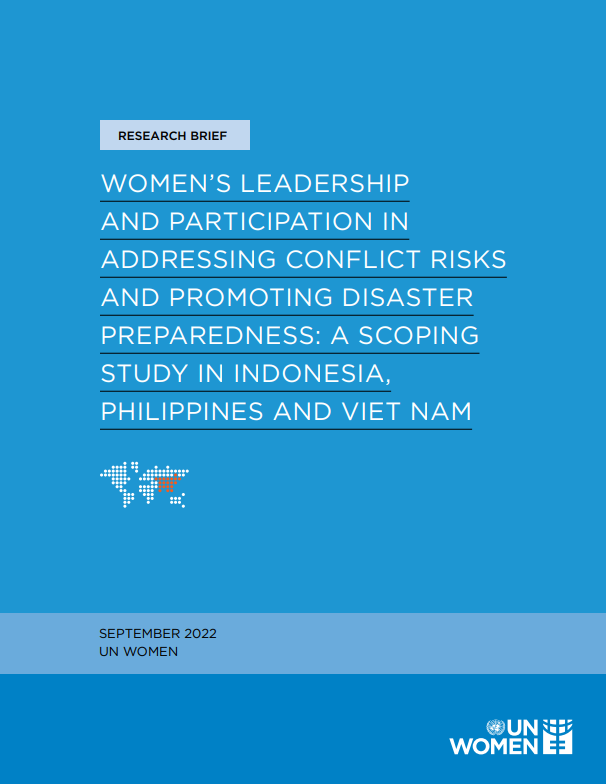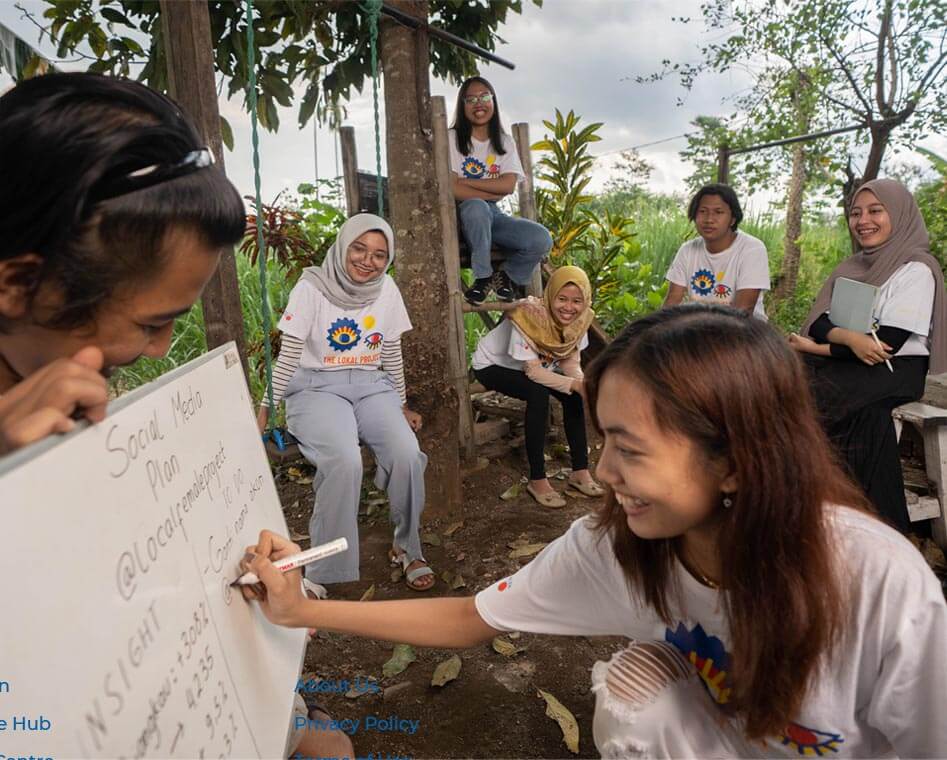
Women’s Leadership and Participation in Addressing Conflict Risks and Promoting Disaster Preparedness – A Scoping Study in Indonesia, The Philippines and Viet Nam
Publication Date: September 30, 2022
Total Pages: 32
Organization: UN Women
Languages: English
Country/Region: Asia Pacific, Indonesia, Philippines, Viet Nam
Topic Area: Gender equality and women’s empowerment, Peace and security, Conflict prevention, Disaster Risk Reduction, Leadership and political participation
Year: 2022
Resource Type: Research
Abstract
The impacts of multiple, overlapping crises arising from climate change, pandemics and conflict disproportionately affect women, exacerbate existing inequalities and deepen power imbalances. These factors must be incorporated into the design and implementation of disaster and conflict risk management initiatives. Sharpening the gender lens in disaster and conflict responses requires recognizing that women perform many roles in disaster and conflict prevention, have access to different information and services, and are impacted differently — yet they are overwhelmingly excluded from decision-making processes and mechanisms.
To advance common outcomes across the humanitarian-development-peace nexus, UN Women conducted a scoping study in three Southeast Asian countries (Indonesia, Philippines and Viet Nam) on opportunities to use gender-responsive strategies and approaches to address conflict and security risk factors and disaster preparedness in a more integrated way.
The scoping study confirmed that disaster and conflict interact in complex ways and that an integrated lens is crucial in certain contexts where disaster, conflict or security risks are present. For example, in
both Indonesia and the Philippines, concerns were raised about the way violent extremist actors took advantage of post-disaster contexts to deepen division and increase recruitment. The scoping also confirmed that efforts to increase women’s participation in decision-making and to expand gender mainstreaming continue to face similar, persistent challenges, including a lack of gender-disaggregated data, limiting social norms and gaps between policy and practice.

